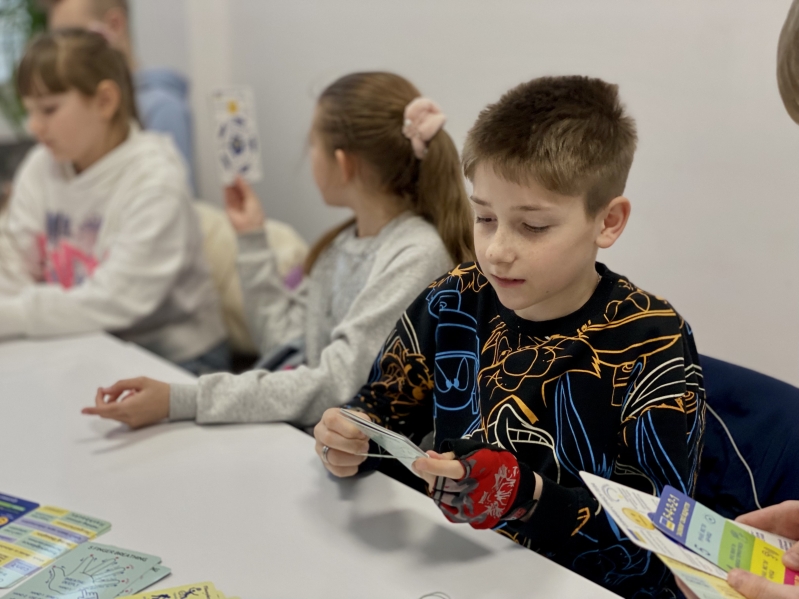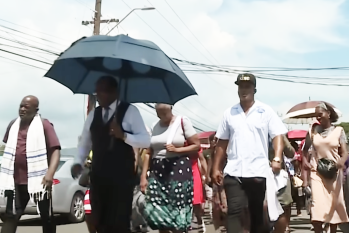
Mission Eurasia expects to serve 30,000 children across 14 countries this summer through Bible camps that combine trauma care with Christian teaching. Eighty percent of participants are Ukrainian children whose lives have been upended by Russia’s full-scale invasion.
The camps, held in partnership with established churches and church plants, aim to provide safe spaces, emotional stability, and gospel-centered hope for children living through the trauma of war. In Ukraine, most are located in central and western regions considered less dangerous, though safety can never be guaranteed.
“These camps are often the first time in months or years that children can feel safe, play freely, and hear a message of hope,” said Mission Eurasia President Sergey Rakhuba, a native of eastern Ukraine’s Donbas region, in an interview with Christian Daily International. “They are places where trauma counseling and spiritual care go hand in hand.”
Trauma at the heart of Ukraine’s crisis
International leaders have warned that Ukraine’s recovery will be impossible without directly addressing the needs of its war-affected children. Thórdís Kolbrún Reykfjord Gylfadóttir, special envoy on the situation of children of Ukraine for the Council of Europe, told a May conference in Finland that rebuilding the country is “an almost empty promise” without trauma-informed care for the young.
“Despite the deep-rooted, widespread and debilitating trauma among all war-affected children of Ukraine, many front-line professionals working with children lack training in trauma-informed care,” she said.
Mission Eurasia positions itself in that gap, mobilizing trained trauma counselors to work alongside local church leaders. These leaders identify children in need and invite them to attend camps, often held in rented facilities, playgrounds, or church grounds. Activities combine recreational programs with Bible teaching, small group discussions, and counseling sessions tailored to children who have experienced displacement, violence, or loss.
Safe spaces and lasting connections
Rakhuba said many children arrive at camps mistrustful and fearful after years of war. “They look for reassurance that they will not be left alone and that their families will not be left alone,” he said. “They’re extremely grateful and receptive to care — and they want to be near people who will hug them and keep them safe.”
He recalled a recent incident in Zaporizhzhia, where children at a Mission Eurasia camp took shelter in a basement during a drone attack. “When the attack was over, they went right back to their planned activities,” he said. Parents, he added, often feel their children are safest when close to a church or in the care of Christians.
The “Summer of Hope” camps are part of Mission Eurasia’s strategy to equip national leaders to reach vulnerable communities. The organization’s Schools Without Walls program trains young leaders in ministry and trauma care so they can lead camps in their own regions. “Nationals live the same reality as the children they serve,” Rakhuba said. “That shared experience builds trust and allows them to connect more deeply.”
The camps are rooted in Christian faith, but Rakhuba emphasized that their purpose extends beyond evangelism. “It’s about restoring hope and building connections so children know they are part of a larger, caring community,” he said. “Even though the war is not over, they can see they are not alone.”
Follow-up is an essential part of the model. After the camps end, local church leaders stay connected to families, offering ongoing support and resources. In many cases, parents and caregivers begin attending church or participating in community programs after seeing the care their children receive.
Firsthand witness to devastation
Rakhuba has visited front-line and recently liberated areas of Ukraine, witnessing firsthand the destruction left behind. He described villages where nearly every home has been damaged, families mourning children killed in attacks, and communities refusing to leave despite constant shelling.
One family he met lost their teenage son to shrapnel as they ran for shelter during a bombing. “Their son was killed right in front of them,” Rakhuba said. “And still they told me they would rather die there than leave their home.”
He has also seen communities in disbelief after losing loved ones, with no safe place to go. “People rely only on organizations and the church to bring them help,” he said. “We’ve been to camps in western Ukraine where we bring kids and widows to a place where counselors work with both mothers and children to help them cope with trauma.”
A model shaped by history
Mission Eurasia’s camp ministry draws on decades of experience. Rakhuba recalled attending the first Christian youth camp outside Moscow in 1992, shortly after the collapse of the Soviet Union. The site had been a communist youth camp; a statue of Lenin was removed, and in its place, a Christian leader stood holding a Bible, declaring God’s Word from the same platform.
“That moment marked the beginning of our summer Bible camps,” Rakhuba said. “Camp ministry is the most effective tool in the hands of national church leaders to reach isolated and traumatized communities of children.”
Today, that model continues, adapted for war conditions. Camps in Ukraine are often hosted in church courtyards or school fields, with adjustments made for air raid warnings and curfews. Counselors incorporate games, crafts, and storytelling alongside counseling sessions.
Beyond Ukraine
While Ukraine is Mission Eurasia’s main focus, the organization also runs camps for Ukrainian refugee children in Poland and Moldova, as well as outreach programs in other Eurasian nations affected by conflict or poverty.
In Kazakhstan and Uzbekistan, where most of the population is Muslim, the camps focus on building relationships and providing a safe space for children. Rakhuba recently visited a Uyghur village in Kazakhstan “that locals say is so forgotten, even by God.” There, children who have little to do in the summer come together for games, meals, and Bible stories.
In Israel, the ministry supports Russian-speaking Jewish communities and Arab Christian initiatives, including projects that bring Jews and Arabs together. Camps are also organized in Armenia and Azerbaijan, which remain in a state of tension.
A call for prayer
The Church in Ukraine has grown threefold since the start of the war, as communities depend on Christian fellowship for both practical and spiritual needs. “When they see true care, and they learn that hope is in God and Jesus, they join,” Rakhuba said.
He asked for continued prayer — for an end to the war, for wisdom among world leaders and for protection over Mission Eurasia staff.
“We want children to experience joy, make friends, and hear that there is hope for their lives,” he said. “And we want them to know that hope has a name — Jesus.”





